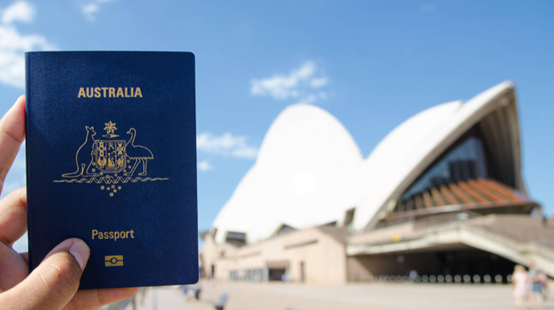Understanding Australian Permanent Residency (PR)
In our previous article, we discussed how to renew Australian Permanent Residency (PR). Many readers were curious about the benefits of holding PR. This article addresses common concerns and highlights the rights and obligations associated with PR status.
Australia, known for its multicultural society, abundant resources, and comprehensive social welfare system, is a popular destination for immigrants worldwide. Obtaining PR in Australia signifies a significant shift in legal status, accompanied by a range of clearly defined rights and responsibilities.

What Are the Rights of Australian PR Holders?
1. Residence and Travel Freedom
PR holders are entitled to reside in Australia indefinitely. They can live in any state or territory and travel in and out of the country freely.
However, prolonged absences (generally more than five consecutive years) may put PR status at risk unless specific exemptions or waivers are obtained. PR holders working abroad for extended periods should carefully manage their status to avoid complications upon their return.
FAQ: What if I need to stay outside Australia for more than five years?
Answer: Apply for a Resident Return Visa (RRV) before leaving. Clearly explain your circumstances and plans. The Department of Home Affairs will assess your application, and if approved, your PR status will remain valid.
2. Unrestricted Work Rights
PR holders enjoy unrestricted rights to work in Australia. They can be employed by any organization, start their own business, or engage in any profession without requiring a work visa.
While PR holders share the same workplace protections as citizens, certain government or national security roles are restricted to citizens.
FAQ: Are there differences between PR holders and citizens when applying for jobs?
Answer: For most positions, there is no difference. Both PR holders and citizens enjoy equal job opportunities and workplace protections. However, government or security-related roles often require citizenship.
3. Access to Social Welfare
Healthcare (Medicare)
PR holders are eligible for Medicare, Australia’s universal healthcare system, which provides free or subsidized medical services at public hospitals. This significantly reduces healthcare costs.
FAQ: Does Medicare cover all medical expenses?
Answer: No. Medicare covers basic services in public hospitals. Treatments in private hospitals, elective surgeries (e.g., cosmetic procedures), and certain medications may require private health insurance or out-of-pocket payments.
Education Benefits
Children of PR holders can access free public primary and secondary education. For higher education, PR holders pay significantly lower tuition fees compared to international students. They are also eligible for government loans and scholarships.
FAQ: Can PR students apply for scholarships?
Answer: Yes, PR students generally have the same access to scholarships as citizens, provided they meet academic and other criteria. However, some scholarships may be limited to citizens, such as those with cultural heritage requirements.
4. Family Reunion Sponsorship
PR holders can sponsor eligible family members, such as spouses, children, and, in some cases, parents, to migrate to Australia. Sponsorship requires meeting strict criteria, including income thresholds and health and character checks for the sponsored individuals.
FAQ: What are the income requirements for sponsoring parents?
Answer: The sponsor must meet minimum income thresholds set by the Department of Home Affairs, which depend on factors such as family size. These requirements ensure the sponsor can financially support their parents without burdening the social welfare system.
What Are the Obligations of PR Holders?
1. Legal Compliance
PR holders must obey Australian laws at all levels (federal, state, and territorial). Violating laws, especially serious crimes such as violence, drug trafficking, or financial fraud, can result in the revocation of PR status and deportation.
2. Tax Obligations
PR holders must comply with Australian tax laws, including declaring global income and paying applicable taxes. Failing to meet these obligations can result in fines, penalties, or legal action.
Tips for Maintaining PR Status
Apply for a Resident Return Visa (RRV)
If you plan to stay abroad for an extended period, obtain an RRV to protect your PR status.Seek Legal Advice
In complex situations, such as facing criminal charges or tax disputes, consult a legal professional to minimize risks to your PR status.Stay Informed
Regularly update yourself on changes to Australian immigration and residency policies.
Final Thoughts
Australian PR status offers a host of rights and privileges, making it a valuable asset for those who choose to live and work in the country. However, it comes with responsibilities that must be carefully managed. Understanding these rights and obligations ensures a smoother and more secure experience in Australia while contributing to the country’s harmony and stability.



 1300 91 66 77
1300 91 66 77







 HOME
HOME


